An IPv6 week is an opportunity to raise awareness and stimulate IPv6 deployment on a national level. It brings a wide variety of stakeholders, knowledge and experience to a country where deployment of IPv6 is low. One of the key factors affecting the success of a national IPv6 week is support from the local community. In Copenhagen, we were very happy to have assistance from DKNOG in preparing and delivering this event.
The IPv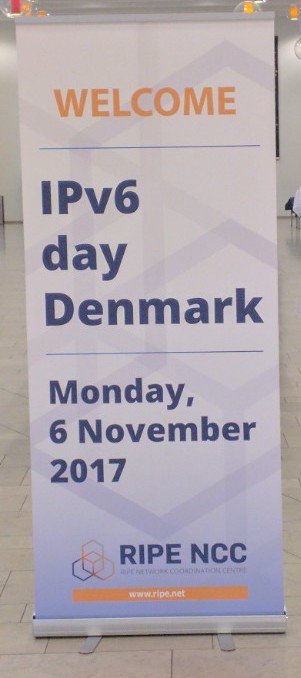
The IPv6 Day was held on Monday, 6 November 2017. You can find the agenda and links to all the presentations online. Over 70 people attended the event. Chris Buckridge, RIPE NCC's External Relations Manager, opened the day with a presentation that showed Denmark holds a relatively large pool of IPv4 addresses compared to the country's population. Chris also explained that Denmark has some interesting IPv4 transfer statistics, showing that Denmark currently exports more IPv4 than that it imports (you can see more on IPv4 transfers in this RIPE Labs article).
Jan Žorž from ISOC talked about the recent work of the RIPE Best Current Operational Practices (BCOP) Task Force. The task force published a document (ripe-690) describing best practices for operators on how many IPv6 subnets they should assign to end-users, along with recommendations on persisted assignments.
If you are interested in how Netflix works and how they get their content to you over IPv6, check out Nina Bargisen's slides. Currently, 13% of Netflix session hours is running over IPv6. Unfortunately, this number is much lower in Denmark, at only 3%. Nina explained that Netflix has been successfully using IPv6 since 2009, first over an external CDN, and since 2011 on their own.
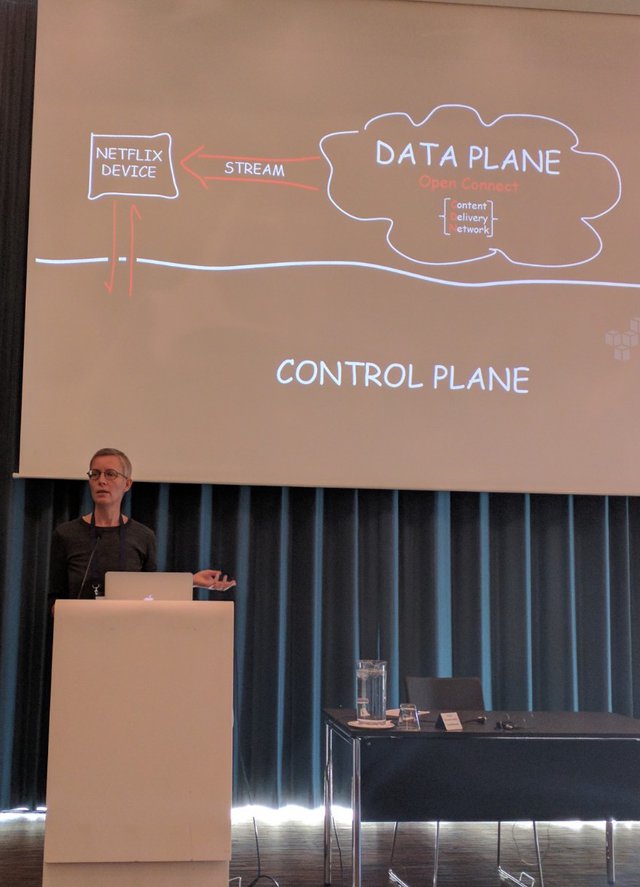
Nina Bargisen presenting at IPv6 Day in Copenhagen
We were very excited to have Tomasz Kossut from Orange Poland on stage. Did you know that Orange Poland currently has 2.8 million IPv6-only mobile users? They have deployed IPv6-only for some years now, and Tomasz explained some of the design decisions they had to make in this process.
Torbjörn Eklöv from Interlan is a Scandinavian IPv6 evangelist, with almost 17 years of IPv6 experience. Torbjörn presented about the IPv6 addressing plan design he made for Gavlenet - a city network owned by the municipality energy company - and highlighted some decisions they made when using DHCPv6-PD. You can read more about this in Torbjörn's recent RIPE Labs article.
Vesna Manojlovic presented the results from the IPv6 Hackathon that took place before the IPv6 Day, and we were lucky to still have Moritz Wilhelmy around to present on his Hackathon project “ICMPv6 support for libpcap”. Moritz, Matthias Hannig and Daniel Lublin spent the whole weekend ploughing through thousands of lines of code to fix the problem that libpcap had: It was not possible to match directly on ICMPv6 packet header attributes. At the end of the weekend, the libpcap team accepted their updates, bringing ICMPv6 support to libpcap.
It is always good to have a large local telco presenting about their IPv6 deployments, as people often point out that they are the reason for slow IPv6 deployment. I was very happy to have Kristoffer Larsen from Telia join us, presenting about “Practical IPv6 Deployment for the Mass Market”.
Another familiar Danish IPv6-face is Henrik Kramshøj, who already starred in our IPv6-deployment video series years ago. This time, Henrik taught us about IPv6 security. A tough nut to crack in 30 minutes, but his presentation was very insightful and practical.
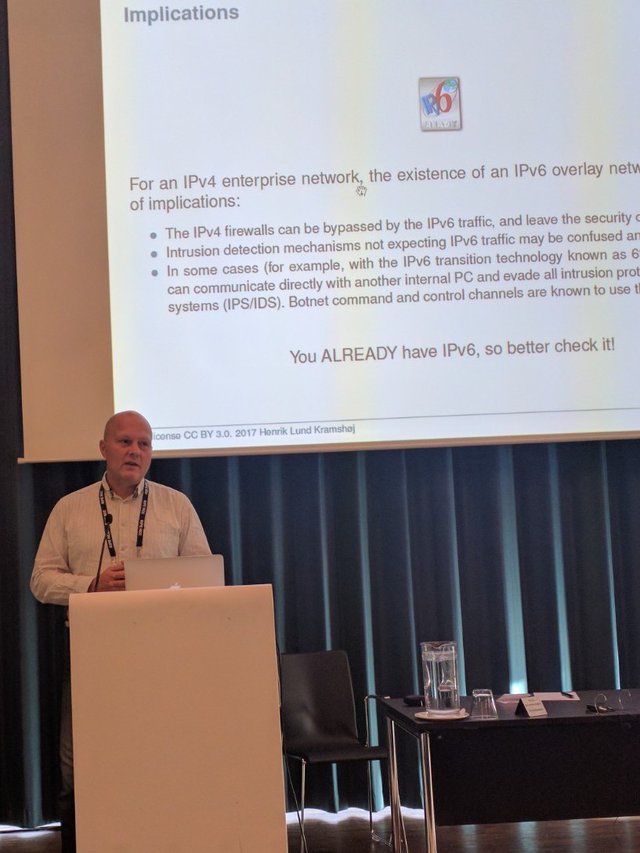
Henrik Kramshøj discussing IPv6 and security
Anders Mundt Due from DeIC provided us with some insights about the IPv6 deployment at the Danish network for Research and Education. Forskningsnettet began offering IPv6 in their production network already in 1998 as the first research network in the world. Since then, Forskningsnettet has offered access to IPv6 to the connected institutions, but real interest has only been apparent in recent years.
After the event, there was plenty of time to discuss future IPv6 deployments in Denmark and I was pleasantly surprised by the amount of questions people were asking, seeing this event as an opportunity to gain knowledge and share experiences. Although this was the last IPv6 event I will organise, since I will move to a different role in the RIPE NCC, I will definitely keep an eye out for any changes in the IPv6 statistics in Denmark, in order to monitor the outcome of this event.
A report about all the great projects that were developed during the IPv6 Hackathon will follow shortly.

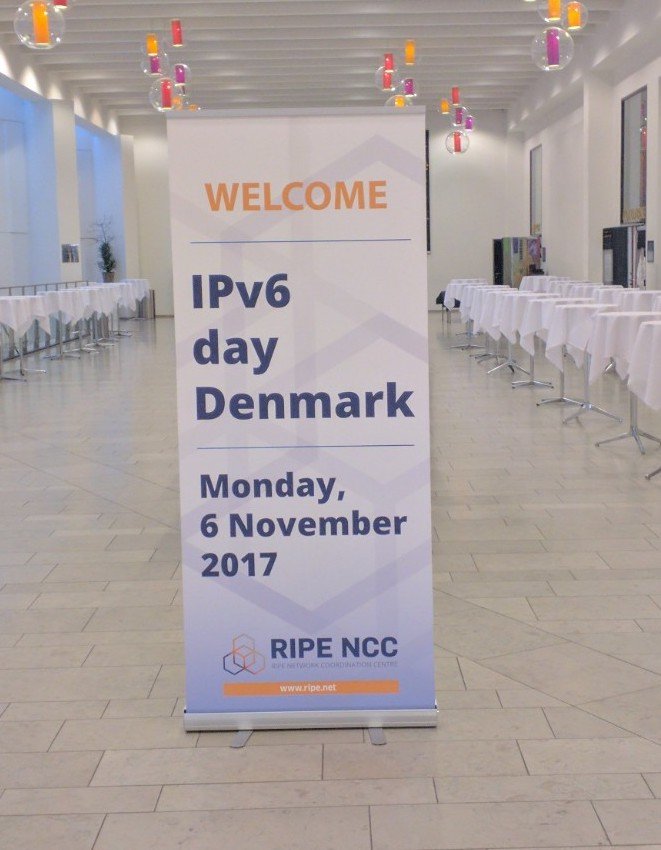
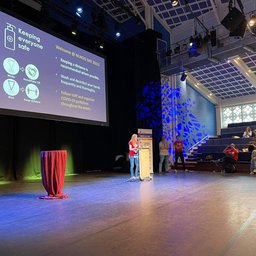


Comments 0
The comments section is closed for articles published more than a year ago. If you'd like to inform us of any issues, please contact us.